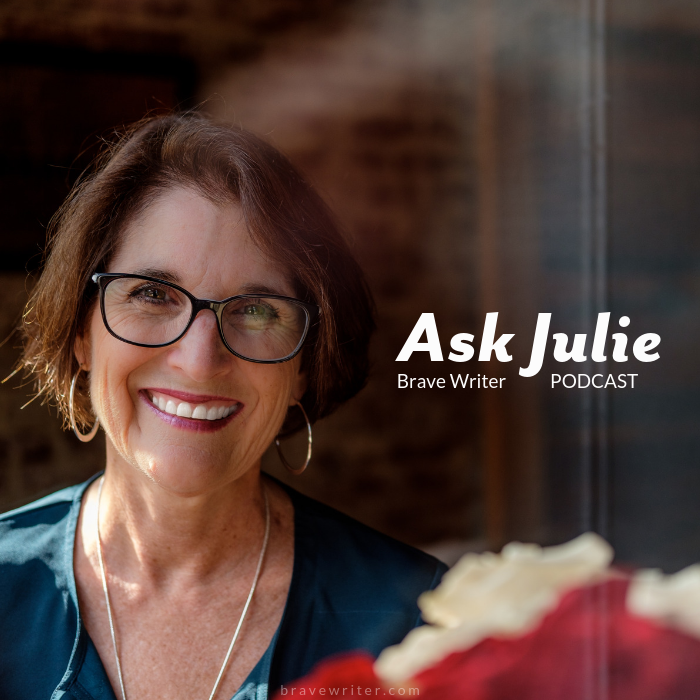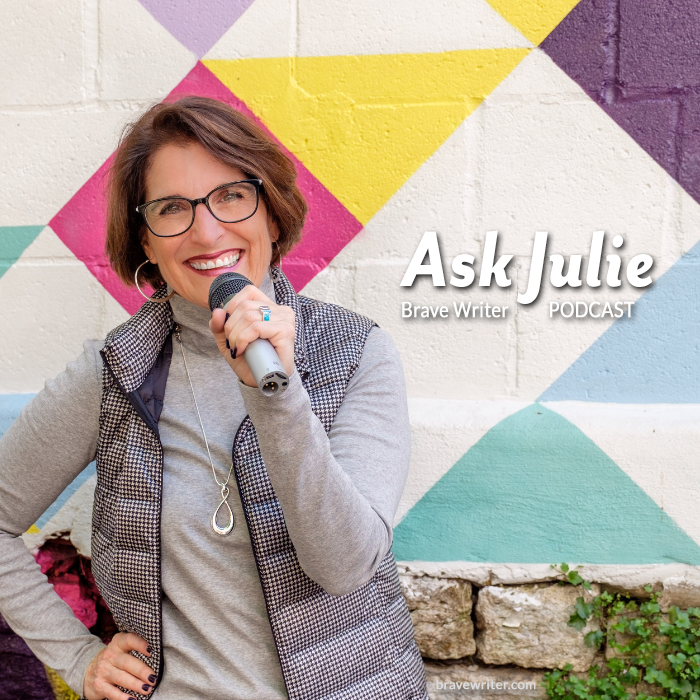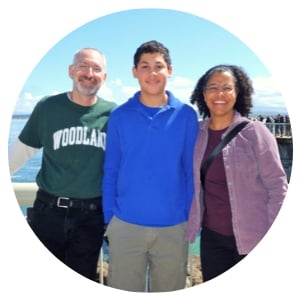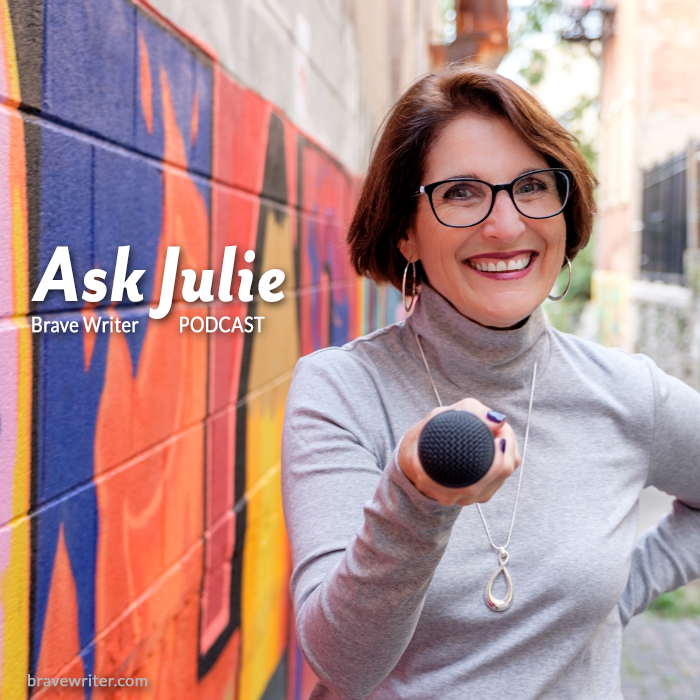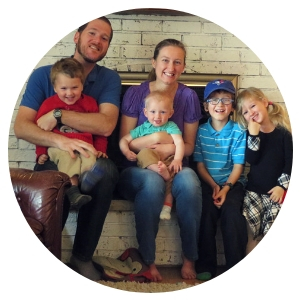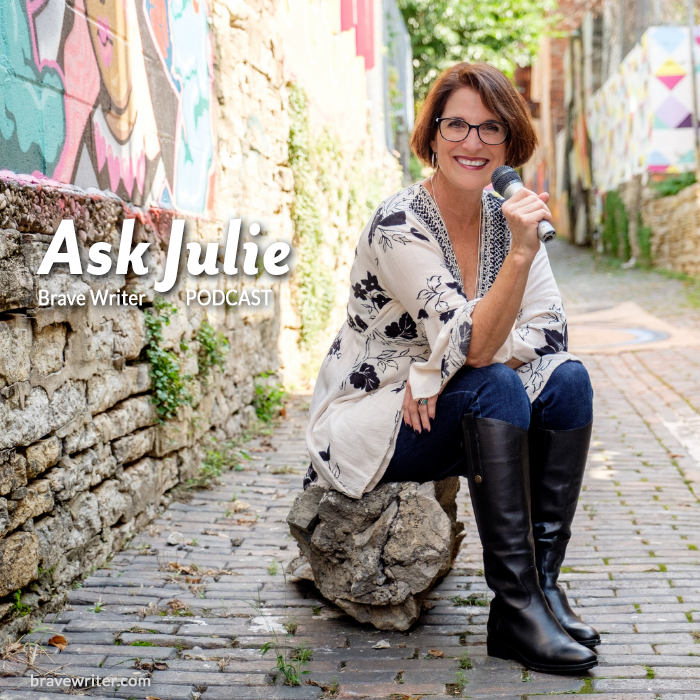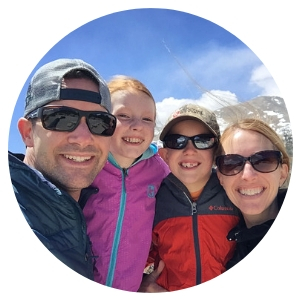
We want three things:
- Seamless connection with our children
- An orderly home
- Time for our own interests & passion projects (Awesome Adulting!)
As you juggle your roles as parent, partner, and home educator, that sacred time for yourself is probably the first ball to drop. But it doesn’t have to be!
Grab your earbuds—you don’t want to miss this episode of the podcast.
Jessica Hammond wrote to me saying, “I want connection with my kids, but I also want to be my own person who does cool things on my own. And right now it feels like a constant tug of war between the two.”
Together, we come up with strategies for nurturing yourself in the midst of nurturing small people.
Trust me—it’s possible—and these ideas will work for you, too.
Make sure you listen to the end of the episode for Jessica’s recap—it’s truly inspiring.
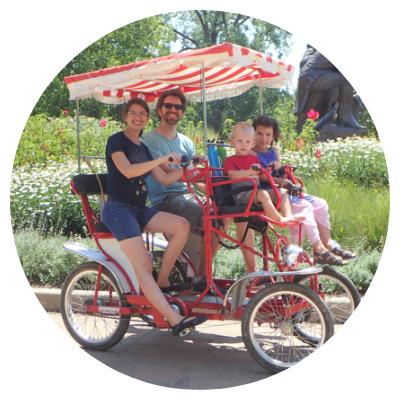
What About Awesome Adulting?
Lower the bar to experience success.
For example, Julie’s routine when she homeschooled included:
- free time in the morning to wake up and get ready for the day,
- a project or activity in the afternoon,
- chores,
- dinner,
- and finally family time and/or working in the evening.
It can be helpful to focus on a routine, as opposed to a schedule.
You don’t have to be rigid, but give yourself the ability to enjoy the choices that you make.
Julie’s Advice
- This conversation with Jessica reminded us of a quote from Julie’s upcoming book, The Brave Learner: “The point is that you can’t expect learning to magically occur if your energy is directed at maintaining a tidy, attractive home. Our need for a perfect learning moment and the perfect cleaning environment are in conflict. You must pick one.”
- So schedule an established day/time for house maintenance and laundry. It could be 4-6 PM while you listen to a podcast or an audiobook. But even if you have a schedule, there will still be some days when the laundry will matter the most and you’ll have to miss out on the other options.
- When you are working on your own project and are distracted or interrupted by a child, you can indulge in that moment (like a cuddle while you’re journaling), but try to finish that particular project so you can give your FULL attention to the next thing.
- Let your children know, “I’m about to do _____. What do you need from me before I get started?”
- Keep in mind that young children will keep getting older and things will change at every stage.
- Try choosing one day a month or week where everyone only does what they feel like doing.
- Remember that “Squirrel Mind” is normal! It’s okay for your mind to dart and it’s okay for you to take breaks when you need them.
- Also remember, when we do commit time to being with our children, it may not always line up with your fantasy or ideal vision — that is OK!
- When you are trying to accomplish something for yourself and it’s not going to happen at that moment, for whatever circumstances: recognize it, accept it as a natural stage of homeschool, give it a date or time to revisit it, then pivot.
- If your mind wanders, practice the mindfulness of just returning: “I’m here, this is where I’m directing my energy.” No guilt about mind darting! No guilt on missing out! Your emotions are not the boss of you.
Remember: imaginative play without adult supervision teaches children a myriad of things. You’re can be a a space-giving parent, and that’s fantastic.
Resources
- Want help getting started with Brave Writer? Head over to bravewriter.com/getting-started
- Sign up for The Brave Learner Conference (July 19, 2019 in Cincinnati, OH): https://thebravelearner.com/conference
- Order Julie’s book at thebravelearner.com (releasing Feb. 5th, 2019)
- Looking to kickstart your writing program this school year? Download the FREE 7-Day Writing Blitz (and tag your creative young writers using #BWBlitz on Twitter & Instagram!)


